Just like phone, console, or Linux distro debates (Debian thnx), ever since cavemen discovered fire hot, fire burn, and fire red people have debated on the internet about which browser is best.
Which at first had validity.
Some internet browsers were genuinely faster than others.
But… these aren’t the Explorer vs Chrome days anymore.
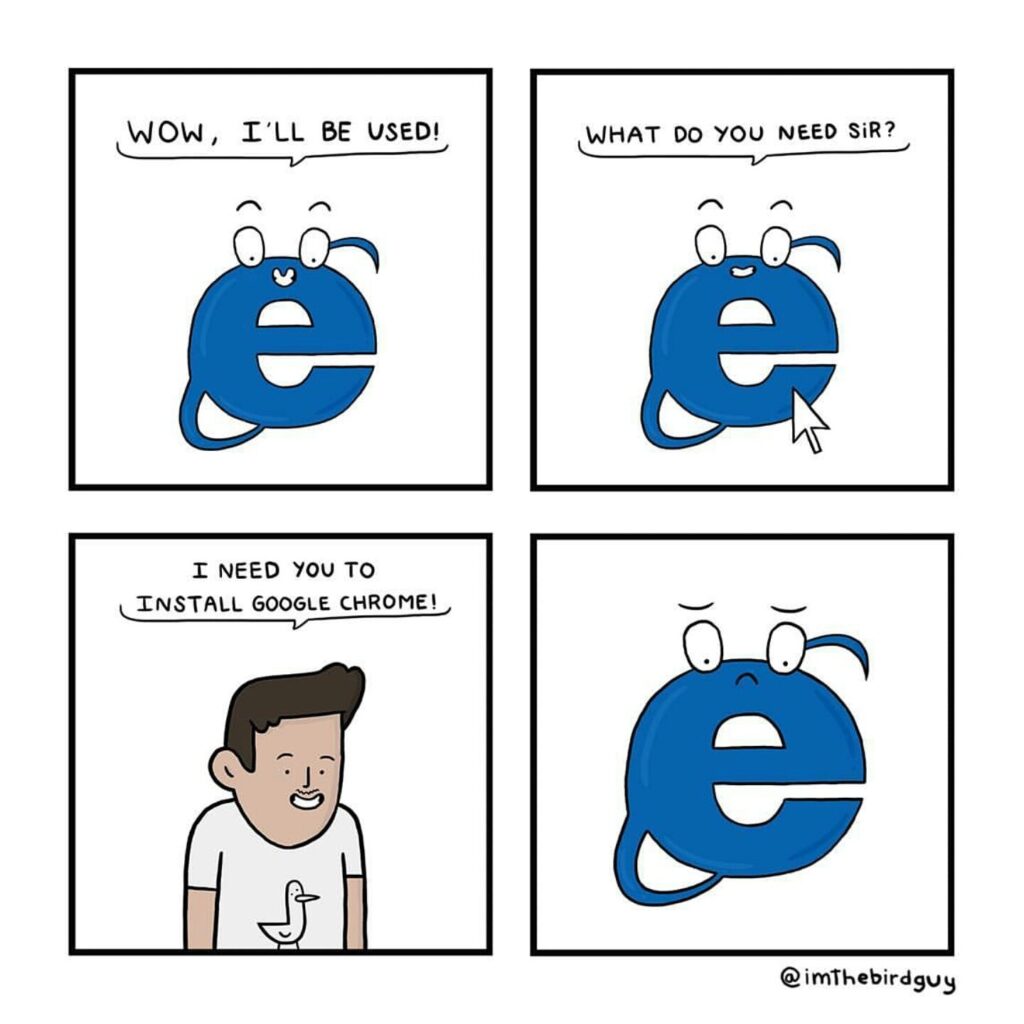
It doesn’t really matter what what you use anymore. There’s no obvious winner, and that’s good.
- Edge
- Opera
- Brave
- Safari
- Chrome
NetscapeVivaldi- Or beyond…
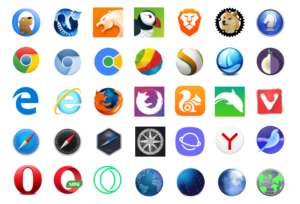
All of these browsers have such similar speeds that your bottleneck isn’t going to be the browser. The difference wouldn’t even be noticeable. Some of those even use the same engine.
The debate now has ultimately evolved past speeds. It’s bigger than that now since the speeds are all roughly the same.
I think now the debate falls under three pillars:
1) Utility
I think browsers like Chrome, Firefox, and Edge really shine here.
They all do a very good job at forming an ecosystem, and giving you a set of tools that improve your productivity.
Personally, this is the biggest reason that I use Chrome. It has an extension for every single thing I need.
There’s nothing I have that won’t effortlessly plug-in to Chrome.
That’s also the same reason I use Safari on my iPhone, though — even though Chrome is also available for iOS.
Safari has modes like reading mode that Chrome skips intentionally because it makes its money off of advertising, so prioritizing content doesn’t benefit them.
(Apple of course intentionally tries to lock things down so their own apps remain the best though, of course.)
Edge also has benefits like full page screenshots (that I use all the time, but with an extension for Chrome) built in that really come in hand that the others don’t.
There’s always trade offs.
Point is:
A huge staple now when people decide what daily driver they want for their browser is the tool set it provides you.
How much utility is it giving you?
Is it increasing your productivity?
You have to weigh out those options and pick the one that works best for you.
2) Privacy
In the past you didn’t really have a choice. It was Google or Google if you ask me.
When it comes to this area, Google is about dead last and Edge isn’t far behind.
Browsers like Brave are centered around it, and Firefox has had privacy in its DNA since inception.
In an era where data harvesting is becoming increasingly profitable it is certainly something you need to add into the debate, though.
This is Brave’s own take on privacy:
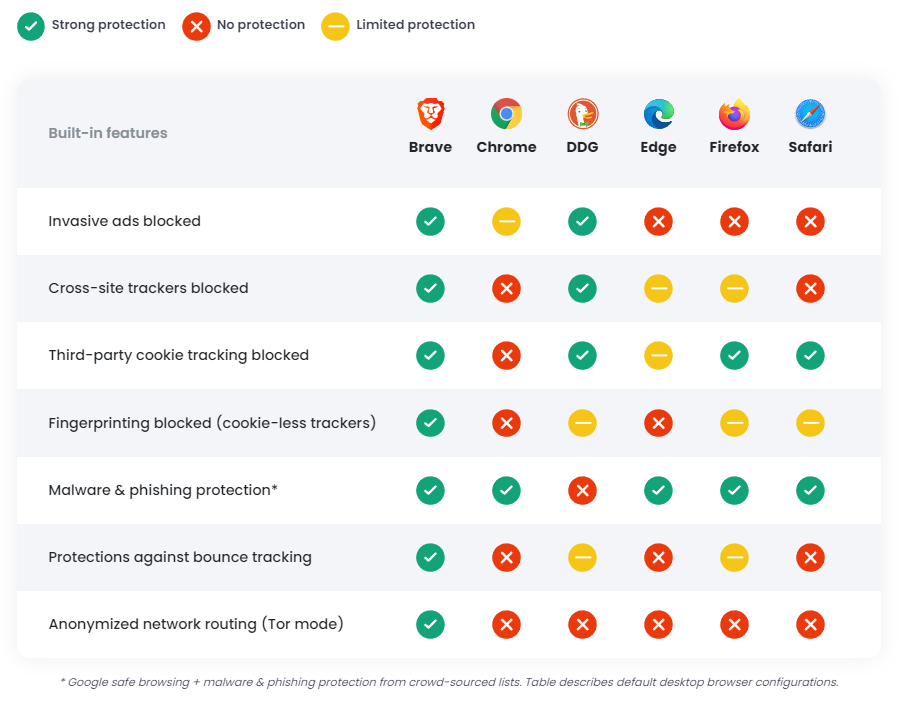
More or less, they say they’re the only ones that care about privacy.
Which is kind of true… if you don’t mention the other privacy focused ones, of course.
One of the most interesting new privacy focused browsers is Mullvad browser, a partnership between popular VPN Mullvad and Tor.
Regardless, you’ll want to do your research.
How does your browser harvest your data?
Where’s it going?
Find that balance that works for you.
Personally, I kind of sell my soul in terms of privacy by using Chrome in exchange for it’s simplicity and utility.
3) Compatibility and Simplicity
What browser just works?
It seems like every single website is optimized for Chrome to me.
It’s like all developers just test their applications in Chrome and call it a day… which, probably doesn’t matter too much anymore when a lot of these browsers use the same engine.
All modern browsers are HTML5 compatible, and Chrome ranks just slightly ahead of the pack on the HTML5 test.
At the end of the day, a browser is supposed to do one thing:
Browse.
Your browser doesn’t have to be the best at everything. It doesn’t need a cryptocurrency locker with a notes feature, plus a built in VPN, etc….
Just what you need.
Now, if you’re the type of person that wants a statistical answer on the debate of “what’s the best browser?”…
What’s the Best Web Browser Overall?
According to StatCounter which while not 100% accurate does give you a pretty good idea…
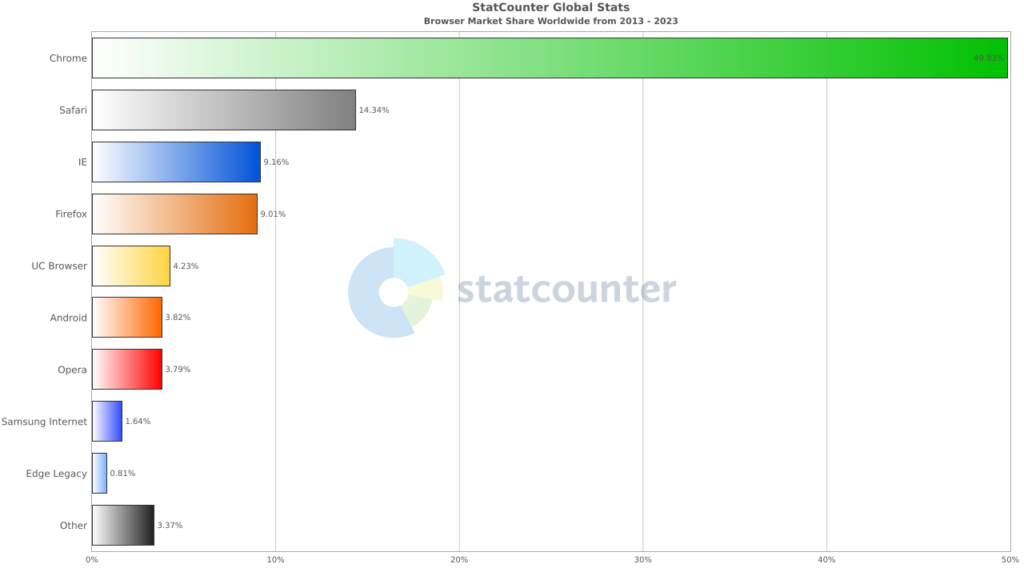
Between 2013-2023, Chrome remained king at approximately 50% market share, Safari at second with approximately 14% market share.
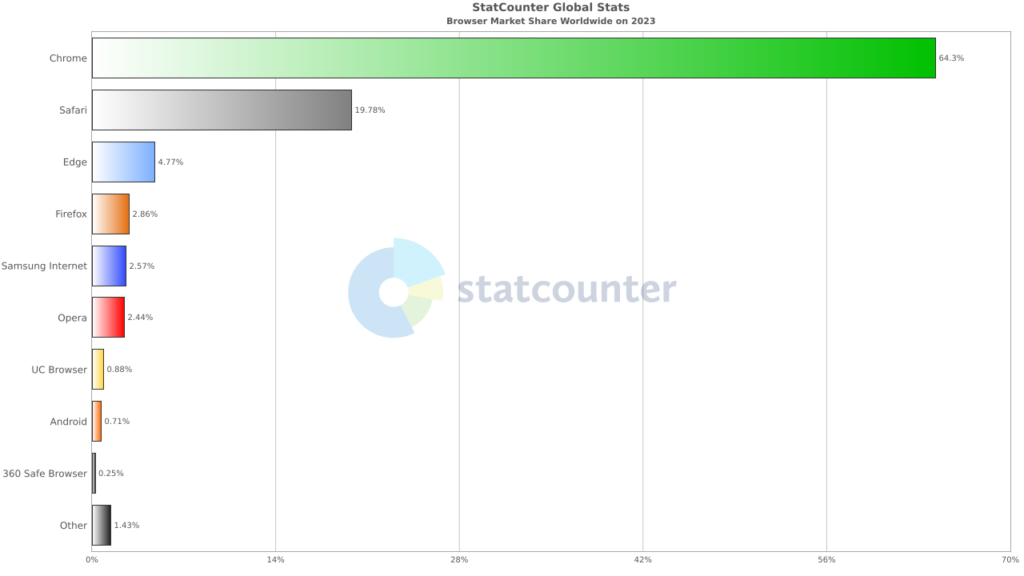
For this year (2023), the market share percentage has gone up over the past 10 year average.
Chrome is now king at approximately 64% market share with Safari following at approximately 20% market share.
So, statistically Chrome has been king and likely will be king for the coming future.
But… to answer the question:
No, It Doesn’t Matter Anymore.
We’ve totally outgrown the early 2000’s.
These products aren’t even competing on what’s the most cutting-edge technology anymore.
Some of these products settled on being the exact same speed by choosing the same engine.
These browsers now instead pick a specific target audience to go after, and go after them.
For example:
The type of advertising Brave is doing is vastly different than Chrome.
The feature set of Brave is suited towards that type of market, the type that values privacy and anonymity.
That individual will get a ton of value out of Brave, and it’s definitely that individuals style.
But the guy next door uses Safari, because he’s a trendy business man that’s too busy to look into customizing. He just wants something that works.
Neither is particularly better than the other. Just slightly different. Both get the job done.
As a wise man once said:
“Whatever floats your boat.”
“Whatever browses your websites.”























I find Safari to be extremely well-optimized — just makes the battery last for so long, lower RAM usage, and the performance is still incredible.
Yandex is the only real web browser.